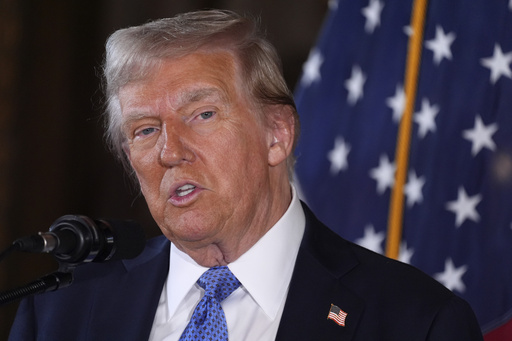WASHINGTON — President-elect Donald Trump has seemingly dealt a significant blow to bipartisan budget negotiations in Congress, labeling the proposed measure as filled with concessions favoring Democrats. This shift followed a campaign of criticism launched by billionaire entrepreneur Elon Musk, who mobilized public dissent against the bill and encouraged Republican legislators to refuse support.
Trump, in a joint statement with Vice President-elect JD Vance, expressed his opposition that effectively halted progress on the budget proposal. This announcement came amid a flood of social media activity from Musk, who condemned the legislation for what he deemed excessive spending practices. He tweeted, “Stop the steal of your tax dollars!” suggesting primary challenges for those who endorse the budget deal, a sentiment that Trump echoed later.
This episode highlights Musk’s increasing political sway, as Trump has appointed him, along with entrepreneur Vivek Ramaswamy, to lead the newly created Department of Government Efficiency—a task force intended to streamline federal employment, cut programs, and lessen regulatory burdens. Representative Andy Barr, a Republican from Kentucky, noted how his office received numerous calls from constituents expressing strong opinions influenced by Musk’s stance.
In their statement, Trump and Vance called for a reexamination of the budget, asserting that any other action would be a disservice to the nation. Additionally, they advocated for a discussion on the debt ceiling extension during President Joe Biden’s tenure, stating, “Increasing the debt ceiling is not great but we’d rather do it on Biden’s watch. If Democrats won’t cooperate on a debt ceiling increase now, what makes anyone think they would do it in June during our administration? Let’s have this debate over the debt ceiling now.”
Trump’s firm stance on what was initially deemed essential legislation reintroduced an atmosphere of disorder and political maneuvering reminiscent of his earlier presidency. This significant development presents a challenge for House Speaker Mike Johnson, who worked on the bill and finds his authority questioned as he approaches reelection in the coming weeks. With Republicans holding a narrow majority, the potential for renewed leadership struggles, similar to those that obstructed the House a year prior, looms large.
Many Congress members were caught off guard, celebrating the holiday season when Trump announced his rejection of the budget proposal. “I’ve been here 14 years, OK? So nothing up here surprises me anymore,” remarked Rep. Steve Womack, a senior Republican appropriator from Arkansas. “We shouldn’t be in this mess.”
The Biden administration weighed in, warning that a government shutdown could result from ongoing political gamesmanship. White House press secretary Karine Jean-Pierre stated, “Republicans need to stop playing politics with this bipartisan agreement or they will hurt hardworking Americans and create instability across the country.”
Grover Norquist, a prominent figure in Washington’s budget battles, expressed concern over the apparent lack of a strategic plan to address the ongoing conflict. “There’s got to be a second part of the strategy,” he commented. While Norquist appreciated Musk’s ability to generate public interest in government expenditure reduction, he suggested that his expertise in space technology might not translate effectively into the realm of congressional negotiations. “He doesn’t know politics like he knows physics,” he stated.
Conversely, some were enthusiastic about Musk’s participation in the political discourse. “In five years in Congress, I’ve been awaiting a fundamental change in the dynamic,” shared Rep. Dan Bishop, a Republican from North Carolina. “It has arrived.”
Musk’s critiques of the legislation began promptly after its release on Tuesday, with his commentary continuing throughout Wednesday. He declared, “Any member of the House or Senate who votes for this outrageous spending bill deserves to be voted out in 2 years!” He even labeled the proposal as “one of the worst bills ever written.” While Musk sometimes perpetuated inaccurate claims regarding the legislation, such as alleging that it put aside $3 billion for a new football stadium in Washington, the actual provision was set to transfer land ownership from the federal government to the city, allowing for future development.
Musk seemed to take comfort in the backlash he inspired, asserting, “The voice of the people was heard. This was a good day for America.” Democratic House leader Hakeem Jeffries weighed in, suggesting that any repercussions resulting from the breakdown of bipartisan discussions would squarely rest on Republicans. “You break the bipartisan agreement, you own the consequences that follow,” he wrote.
